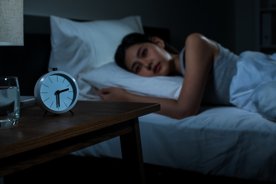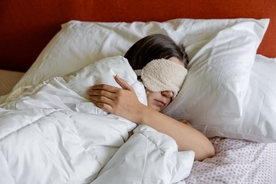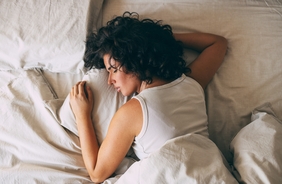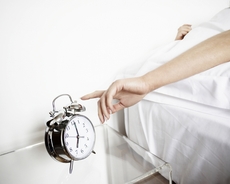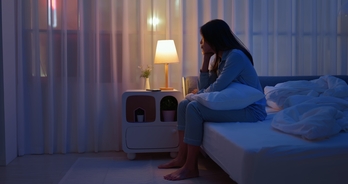Like a lot of us, I've always thought there were two kinds of people in the world: morning people, and evening people.
The morning folks - the ones who wake up two hours before they have to in order to hit the gym, or make breakfast before sunrise even on the weekend - have always been the envy of the rest of us. But the evening folks don't always care; we're often too busy staying up past midnight in order to get some work done, or hitting snooze on the 17 alarms we need in order to get ourselves out of bed every day.
As it turns out, however, struggling to get up in the morning isn't always to do with being a night owl. In fact, in some people, it's an actual medical condition.

Known clinically as "clinomania" or "dysania", the inability to get out of bed every day is a legitimate problem.
People who have the condition will struggle to get out of bed even when they have other commitments to attend to, and will cancel plans in order to stay in their rooms. In a way, they are addicted to being in bed. This is where the term "clinomania" applies, as it comes from the Greek clino (bed) and mania (addiction).
But clinomaniacs aren't just being lazy, and their need to stay in bed could actually be causing them some serious health problems.
A lack of sunlight, exercise, and social interaction can - over time - cause a person to have low moods, which might even worsen their dysania and make it even harder to get out of bed.

Sometimes, however, the cause and effect is the other way around, and people develop dysania as a result of another underlying health condition.
Those who suffer from common mental health problems such as depression and anxiety may find it hard to leave their beds at a reasonable time, and individuals who have Chronic Fatigue Syndrome (also known as ME) will feel like it's practically impossible to get up and remain energised even after a decent amount of rest.
Of course, if you're still cozied up under the sheets by midday because you went out the night before or stayed up until 5am marathoning Hill House, you probably don't have dysania. On the other hand, if you went to bed at a reasonable time, got a full night's sleep, and still can't shift your butt in time to get to work, you might be afflicted by the condition.

If you genuinely believe you might be suffering from dysania or clinomania, it is worth visiting your doctor or doing some research on the condition. Some people can be helped by a change in routine or diet/exercise, others might need to undergo talking therapy, and those with underlying mental health problems may be prescribed with anti-depressants in order to give them that boost they need in order to say goodbye to oversleeping.
And if you're reading this in bed right now, consider this a gentle push to get up and ready. You've got the whole day ahead!

